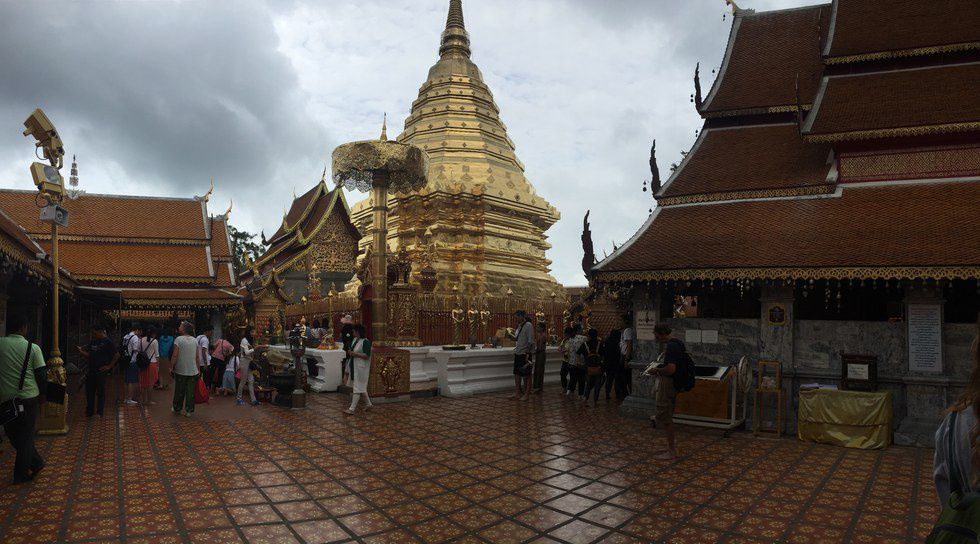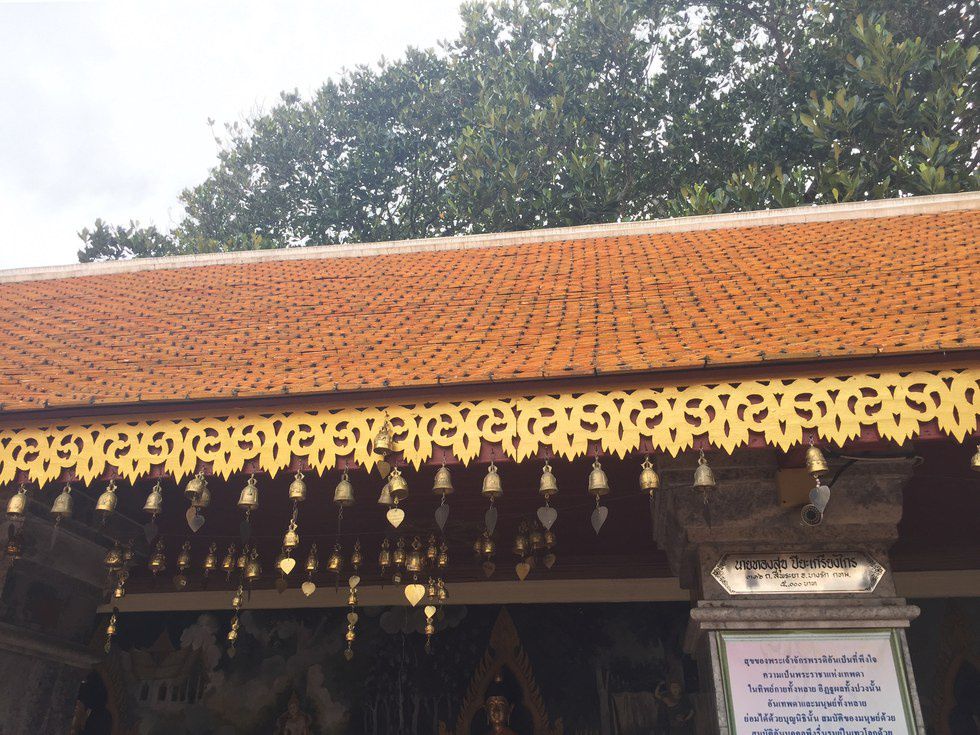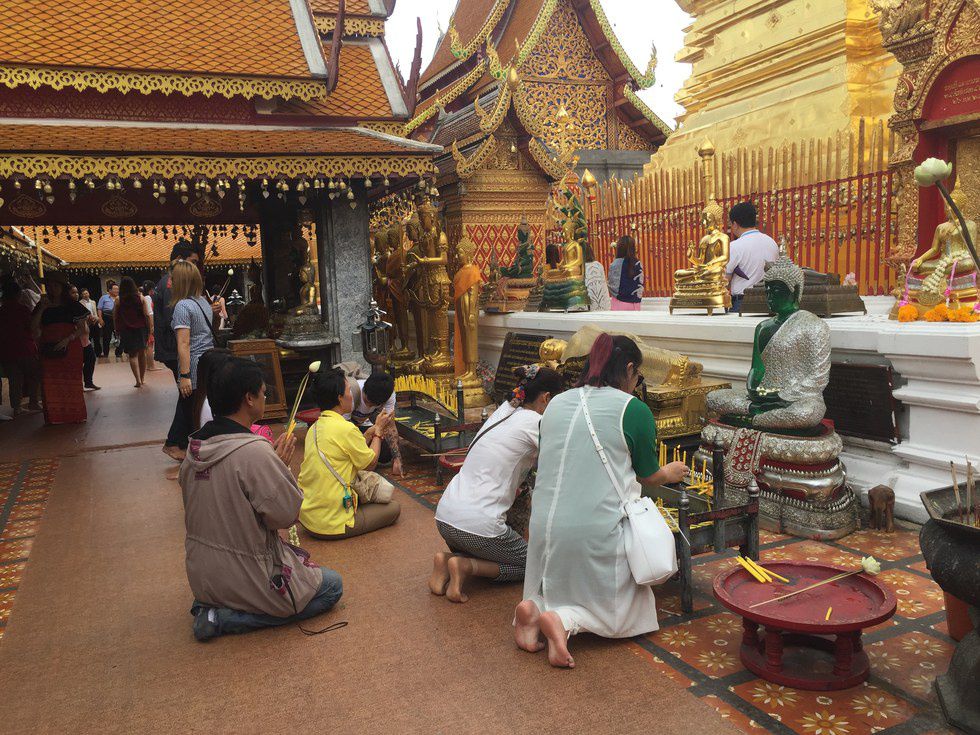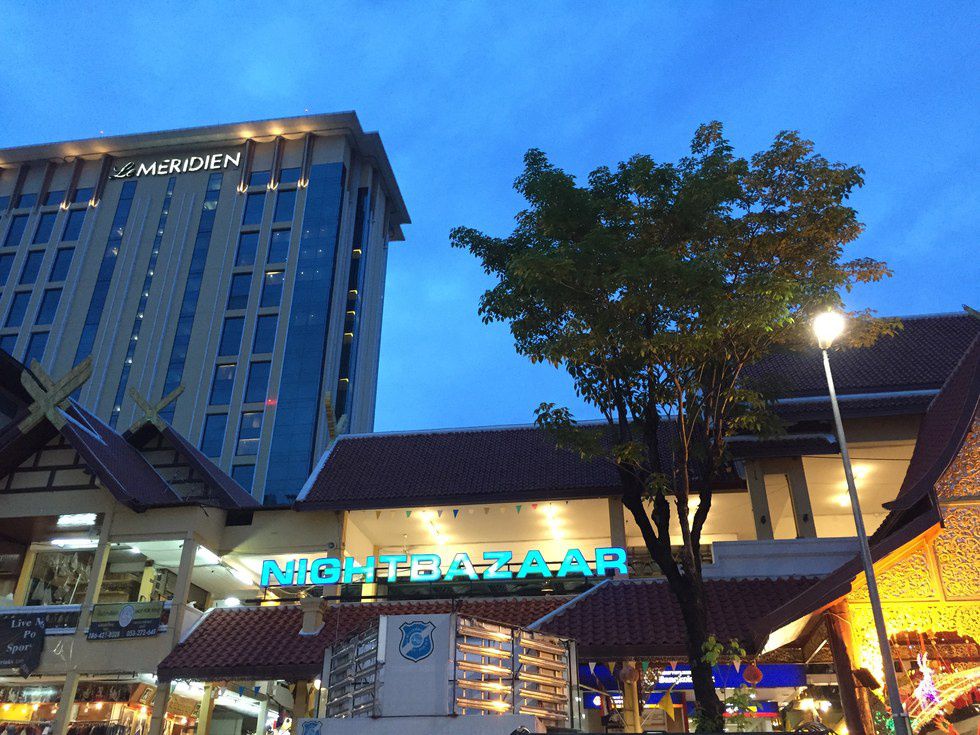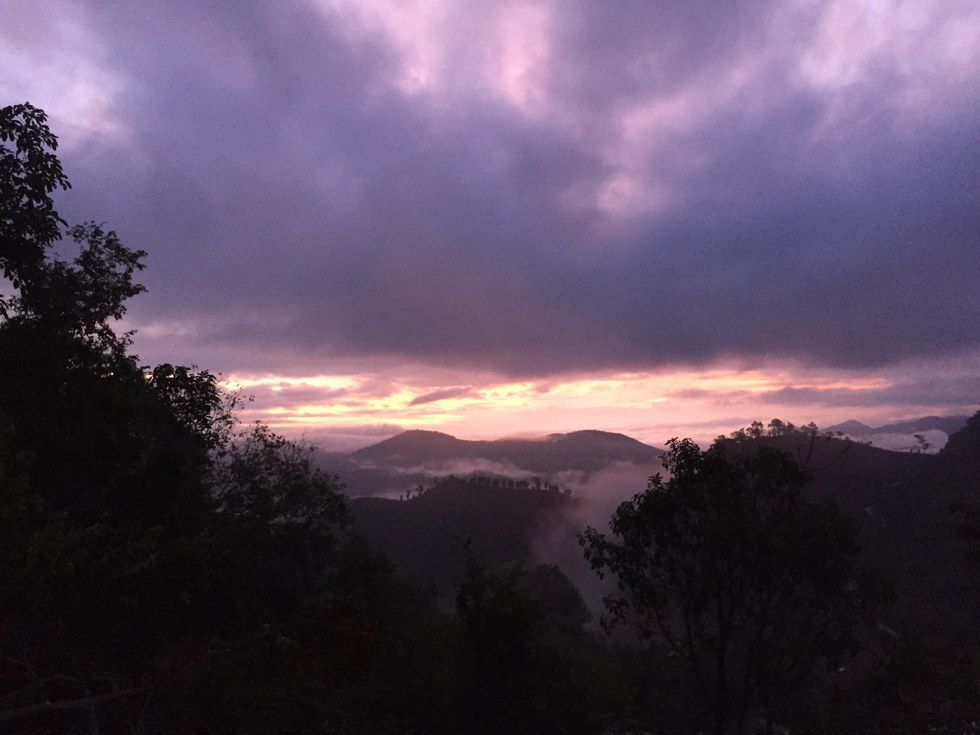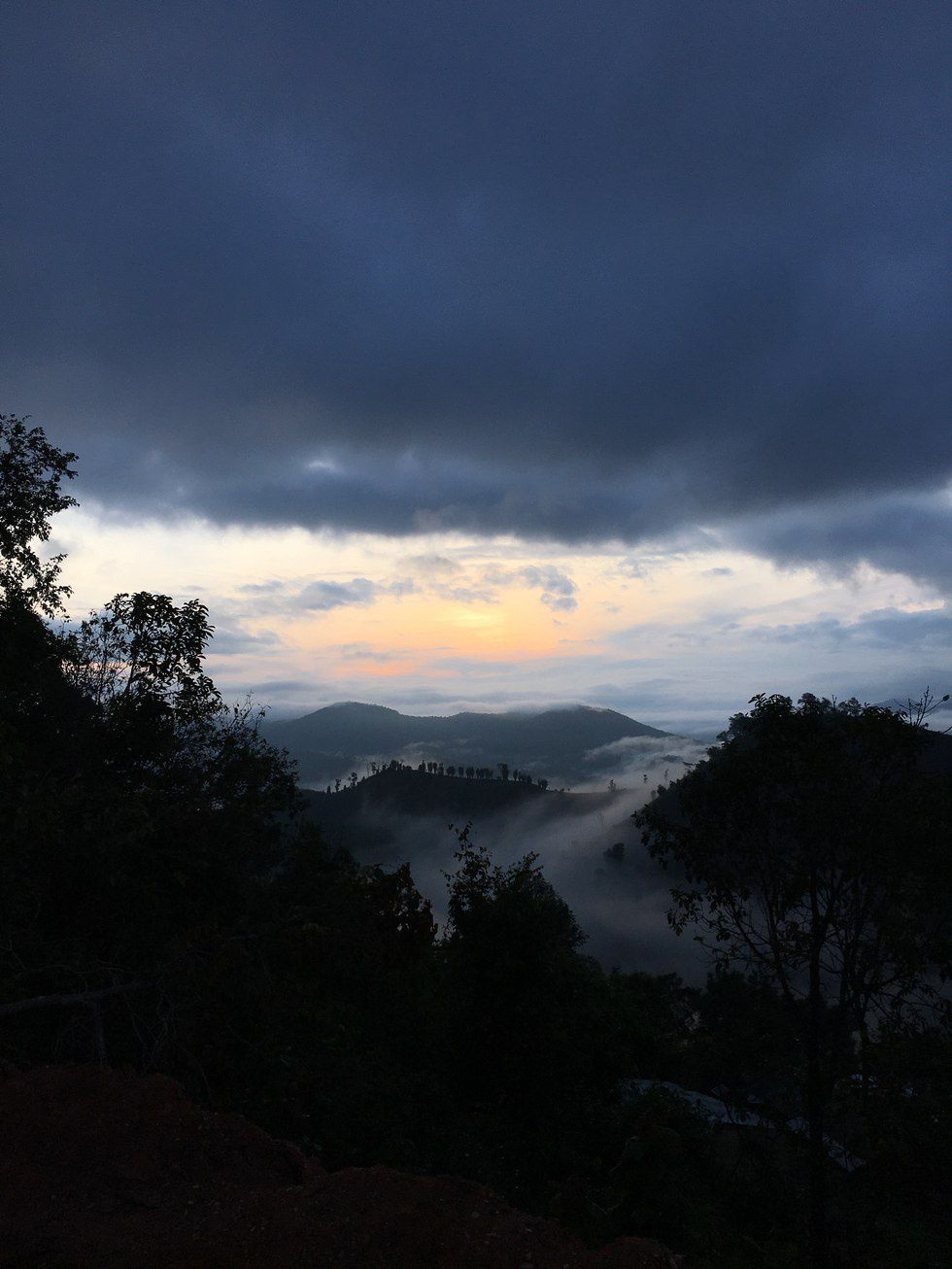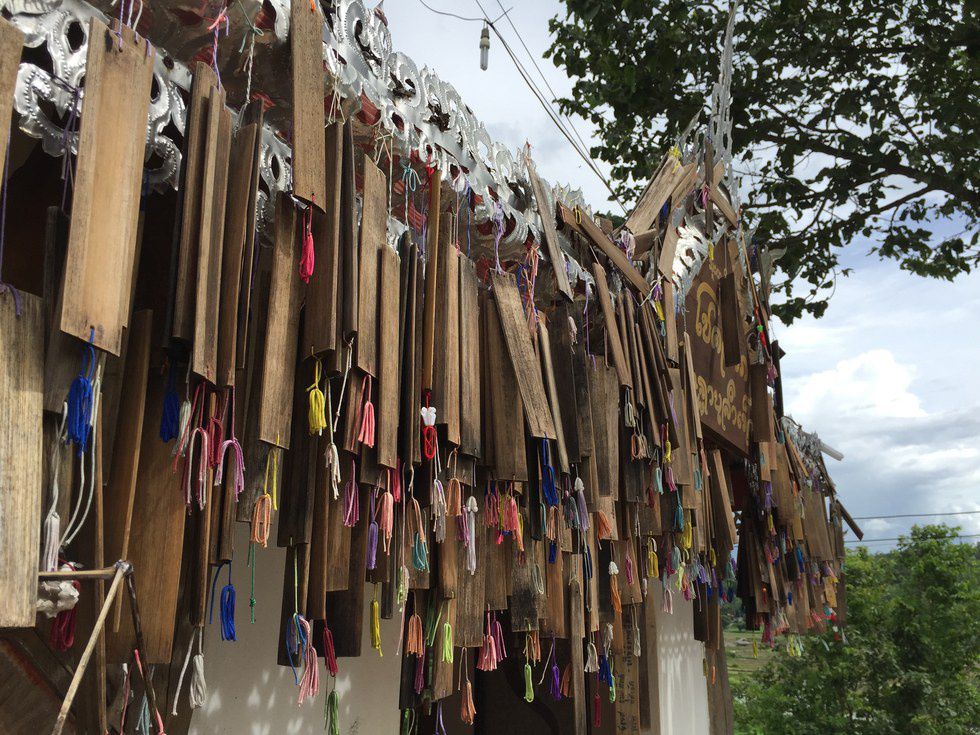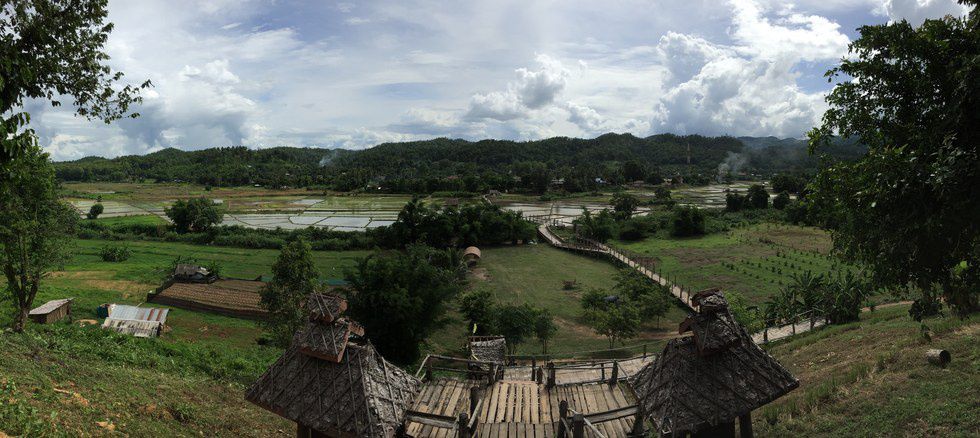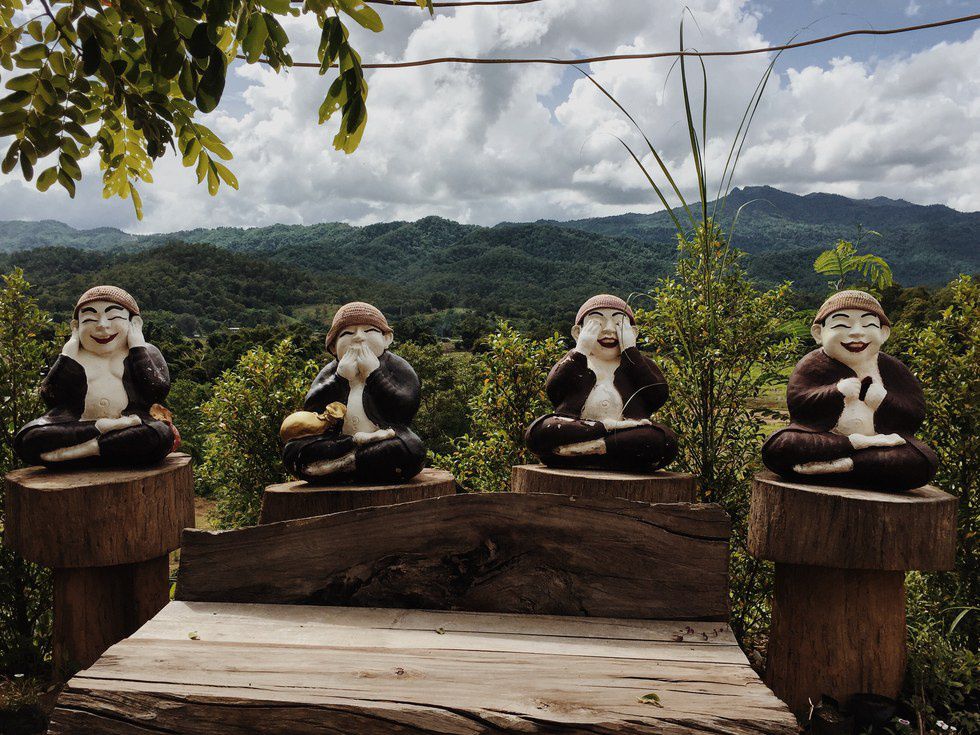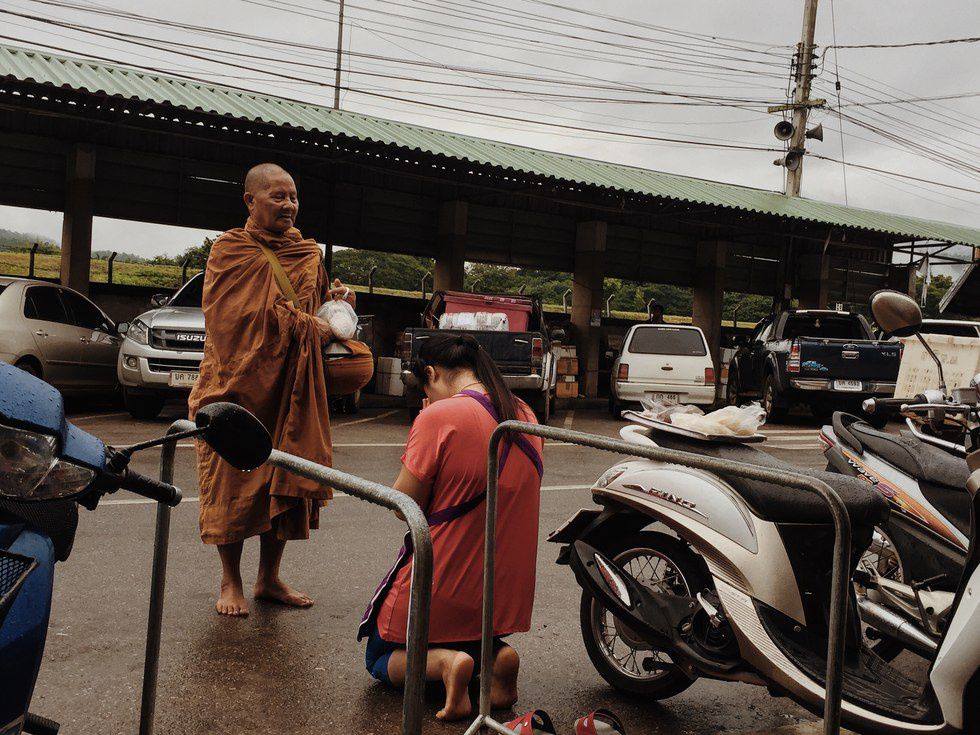"Not all those who wander are lost." - J. R. R Tolkien
In the summer before my very first semester of college, I felt as if it was my time to wander.
This summer, I went on a 25-day service trip to Thailand. The purpose of the trip was to let go of the idea of happiness as tied to materialistic possessions and embrace a lifestyle of living in the present and appreciating the non-material happiness in life.
I fell in love with the Thai culture, Thai customs, and all of the moments I was lucky enough to experience. This is a culture I believe shines through in the photos I captured, in the moments I was able to live both behind and beyond the lens.
Our journey started and ended in Chiang Mai, one of the largest cities in Thailand. On our first day, after 22 hours worth of flights and a 2-hour car ride we made it to this Buddhist temple. Thai Buddhist temples were hands-down my favorite part of the entire experience. It's not something I can necessarily describe in words, but there's something different in the air surrounding a Buddhist temple — and not just because of the fact that these temples are typically built on an elevation higher than the other buildings in the vicinity. We visited a total of 4–5 of these temples during our trip, and I valued every opportunity we received to learn more about Thai culture by way of their most practiced religion. When we returned to Chiang Mai at the end of our trip, we spent a night in the bustle of the city visiting a few night markets. After three weeks spent in more remote villages scattered in a loop around Northern Thailand, finding myself back in the bustle of a large city was a source of anxiety. Everything was so much louder, so much brighter, so much more congested; in my three weeks in Thailand, I managed to fall in and out of love with city life.
The first village we visited was up high in the mountains. That meant sunrises and sunsets like this every day, especially because this high in the mountains, the heavy rains hitting the rest of Thailand tend to stay away from the mountains. Life in this first village was initially difficult in many ways because it was the first moment when we completely became immersed in Thai culture and left a lot of the the more material concepts that we had carried going into the trip behind. But, I can say that there is no better lesson in being present than waking up at five in the morning, even after a hard day's work the day before, to stop, let time stand still, and watch nature take its course around you.
Mae Hong Son. Absolutely my favorite place we visited in Thailand. In size, I would compare Mae Hong Son to a city like Boston, maybe even slightly smaller. It definitely still has the feel of a city, but stands a little quieter, a little calmer. Our visit to Mae Hong Son was packed with visits to markets and temples — my two favorite parts of Thailand. Let me tell you: you've never truly experienced variety until you've visited a Thai market. Fruit and vegetable stands line the aisles alongside boxes of clothes not far from a fully-stocked meat market and scattered with vendors cooking ready-made food. Every day in Mae Hong Son was a new cultural experience, and every day was a new day in a city that I absolutely loved, in a city that taught me more than any other that it is still possible to present and remember the power of person-to-person interaction in a city-setting.
On my last days in a country, I always like to reflect on what I learned over the course of the journey. Upon leaving Thailand, here is what I took away:
When you go to a country, don't expect the world around you to assimilate to your language and culture just because it's the more "western" one. Embrace that country's culture: respect is as equal to your own, and that country will do the same. Before my trip to Thailand this summer, I had the word divided in my head as a world of "first world" developed countries, "second world" middle countries, and "third world" developing countries. I now realize that this last label is, more than anything, a construct created by western societies — societies that have more materialistic possessions but not necessarily greater richness in culture, history, or values. I've since revised my view of the world: the way to achieve true global progress and eradicate ignorance about other cultures is to forget these constructs, to not live in a world where countries are labeled primarily by economic indicators, and to forget the mentality of "them" and "us." The only way to truly learn from and work with other cultures is not by "helping" the one deemed "inferior," but by working alongside each other as equals united by our humanity. Because that, ultimately, is far more important than cultural differences.
"If you have come to help me, you are wasting your time. But if you have come because your liberation is bound up with mine, then let us work together." – Lilla Watson




